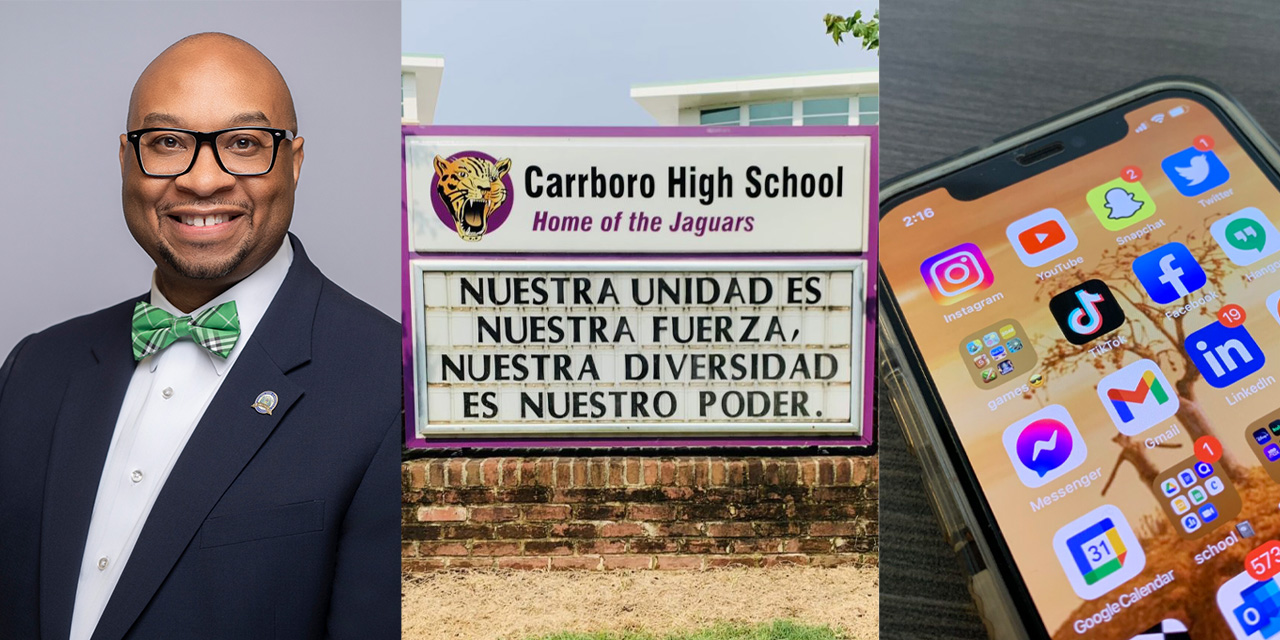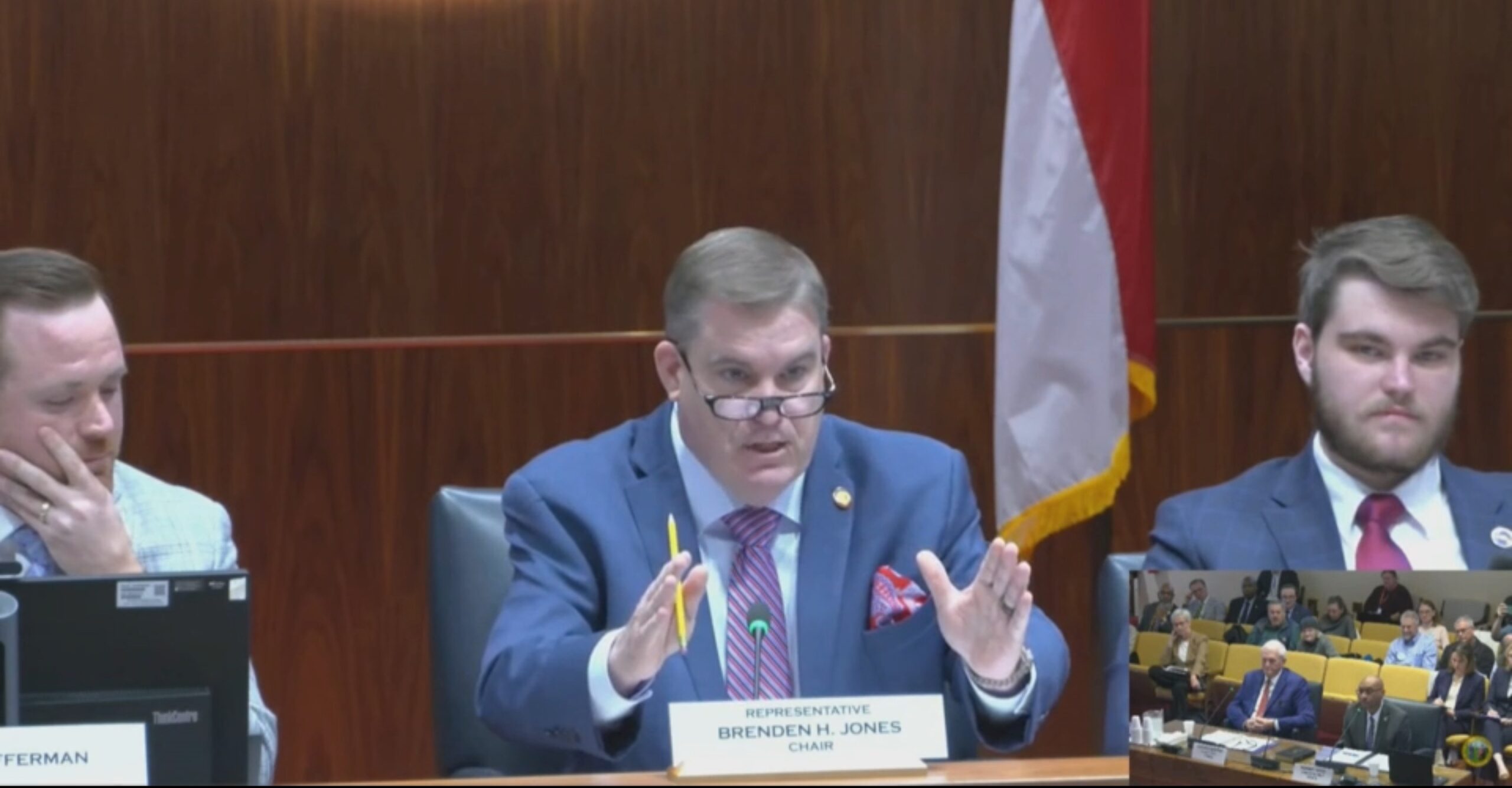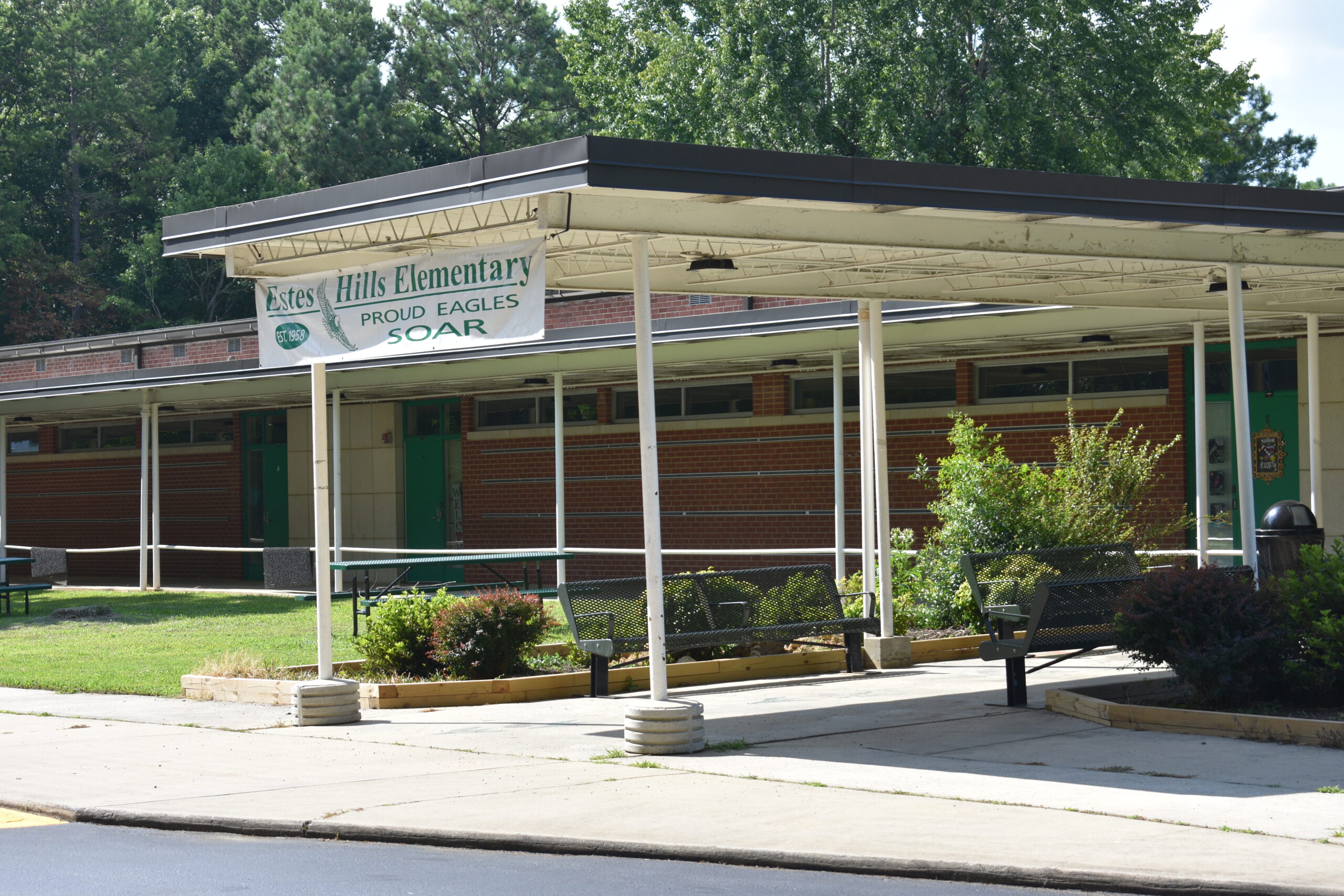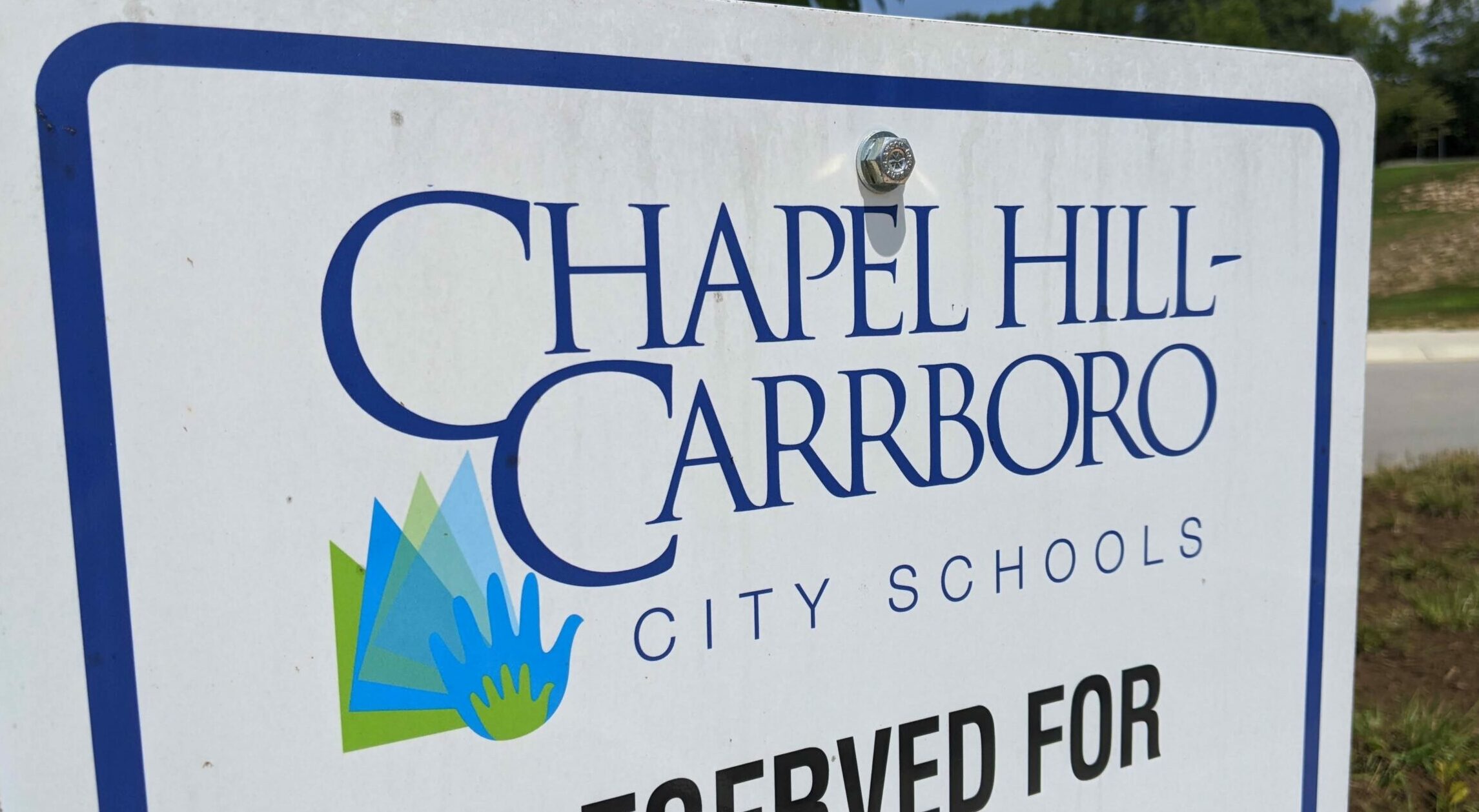The Chapel Hill-Carrboro City Schools district became the latest in North Carolina to adopt policies dictated by the recent “Parents’ Bill of Rights” law when its board of education met on Thursday. The measure, also called Senate Bill 49, called for changes across public schools allowing parents more privileges into their children’s classroom instruction and access to paperwork kept by schools.
But the school board’s choice to not pass two provisions of the new law is grabbing the attention of locals and Republican leaders in Raleigh.
Like other “Parents’ Bill of Rights” laws passed in the U.S., North Carolina’s measure includes sections targeting LGBTQ+ students and eliminating classroom discussion of gender identity and sexual orientation from grades K-4. Those inclusions, among others, led to Democratic Gov. Roy Cooper vetoing the bill, only for the Republican supermajority of lawmakers to override the veto and enact the measure last August.
The Chapel Hill-Carrboro Board of Education pushed back on those same provisions during a first reading of the draft policies in November. The board ultimately directed the district’s policy committee to craft versions that did not include two measures: the prohibition of discussing gender identity and the requirement for teachers to alert parents whenever a student asks to go by different names or pronouns in class.

Chapel Hill-Carrboro City Schools Superintendent Nyah Hamlett (left) stands with the 2024-25 Board of Education for a portrait following its organizational meeting in December. (Photo via CHCCS.)
On Thursday, board members continued to share their concern about those portions. While they passed the first readings of policies on objection to instruction materials, how students are surveyed, and student health services – some of which district administrators maintain their staff already follow as good practice – the elected officials chose not to adopt those two parts. Instead, the board directed district staff to come up with written guidance for what to do in those situations – which will allow educators more flexibility than if it were adopted as policy.
Board Member Barbara Fedders, whose election campaign in November pushed back against the “Parents Bill of Rights,” said Thursday she felt it was necessary to take some action with the policy proposal. She said after hearing stories from educators and students about confusion about what’s allowed in the wake of Senate Bill 49, the school board could give guidance – including which parts of policy the district would accept.
“I think I would be in favor,” Fedders said, “of having a policy that is minimally compliant with this law that still embodies our district’s values of inclusiveness.”
Riza Jenkins, who is the board’s vice chair, agreed and said she believes it’d be best for CHCCS to “live in the gray” regarding compliance with SB 49. She said she believes it’s important for the district to continue seeking ways to maintain its current handling of gender identity questions or changes – but cautioned the board about getting bogged down by any resulting litigation.
“I don’t want us to say, ‘We’re not going to do it,’ and then we end up in a lawsuit spending limited taxpayer dollars,” said Jenkins. “It’s those things that [as the] Finance, Facility and Operations [Committee] chair, it sits in the back of my mind. We’re making tough decisions in a tough climate, but we’ve got to be fiscally responsible.”
Read the policies passed by the CHCCS Board of Education here.
Board Chair George Griffin pointed out that the school board could always revisit and revise its policies depending on responses – acknowledging a legal obligation to both follow the state’s laws while protecting the district’s students. Griffin said, though, he believes this is a situation where those two things are “at a crossroads.”
“Just because something is in law doesn’t make it right,” he added, “and doesn’t make it palatable to me, no matter how you word it. It’s discriminatory: it targets a sub-group of children no matter how you look at it. My sense is that we do need to stand up and show people that someone has the courage to just say, ‘This is morally wrong and we’re not going to do it this way. We are taking care of our kids, it’s working and we’re going to keep doing that while we look at other ways to figure this out.’”
For now, there is no clause or section in the “Parents’ Bill of Rights” law that dictates what punishment or enforcement is possible for districts who don’t follow the policy requirements. That could be changed if the General Assembly adopts any amendment to the law in the upcoming session. But the state government could find other ways to take aim at the CHCCS district – as it has other Orange County elected bodies in the past.
In 2017, the General Assembly passed a bill that targeted Orange County over its impact fees for development projects. After county commissioners had raised those fees – which added to allocations for school funding based on local construction projects – the state House passed a bill repealing that authority. Despite the Board of County Commissioners reeling its impact fees back to lower levels, the law passed the Senate and Orange County can no longer use that funding source.
After the board’s decision on Thursday, some lawmakers and state officials jumped to criticize the move. North Carolina Superintendent Catherine Truitt said on the social media platform X “it’s unacceptable for Chapel Hill or anyone else to ignore” the law, while Senate Majority Whip and Kinston Republican Jim Perry said he looks forward to “addressing this lawless behavior in the short session.”
Many community members during the public comment periods on Thursday and in November when the policies were first read, however, voiced support for the school board not adopting the provisions. And Orange County’s representative in the state Senate, Graig Meyer, also added his support of the district’s actions.
Meyer criticized Senate Bill 49 when it was first introduced as likely harmful to children and poorly written in its definitions of gender identity and LGBTQ+ elements. Since then, he said he’s heard from educators, school district attorneys and student that the measure has “created more confusion than clarity.”
“In the provision on kindergarten through fourth grade instruction, it says you can’t offer any instruction on gender identity. If you take that as a literal truth, that means you can’t teach children that there are men and women – much less that there are gay people or trans people, or anything that Republicans seem to be upset about. But the idea that you can’t teach kindergartners about gender identity is farcical.
“I don’t think that they win anything from this,” Meyer added, “but they sure as heck run the risk of hurting a lot of kids.”
The provisions required by Senate Bill 49 will come before the CHCCS Board of Education again, since Thursday’s meeting was a first reading. A second reading to formally enact the approved policy changes and continue hearing public comments on the provisions excluded from the changes will be held at a future meeting.
To watch the full Chapel Hill-Carrboro City Schools Board of Education meeting from January 18, click here.
Chapelboro.com does not charge subscription fees, and you can directly support our efforts in local journalism here. Want more of what you see on Chapelboro? Let us bring free local news and community information to you by signing up for our biweekly newsletter.









